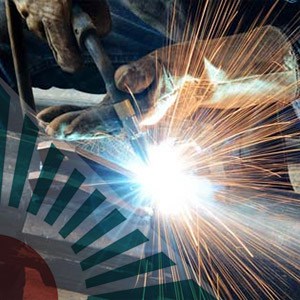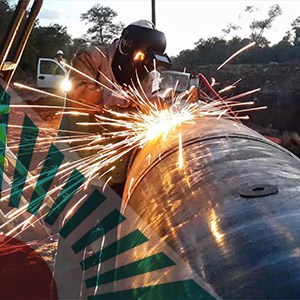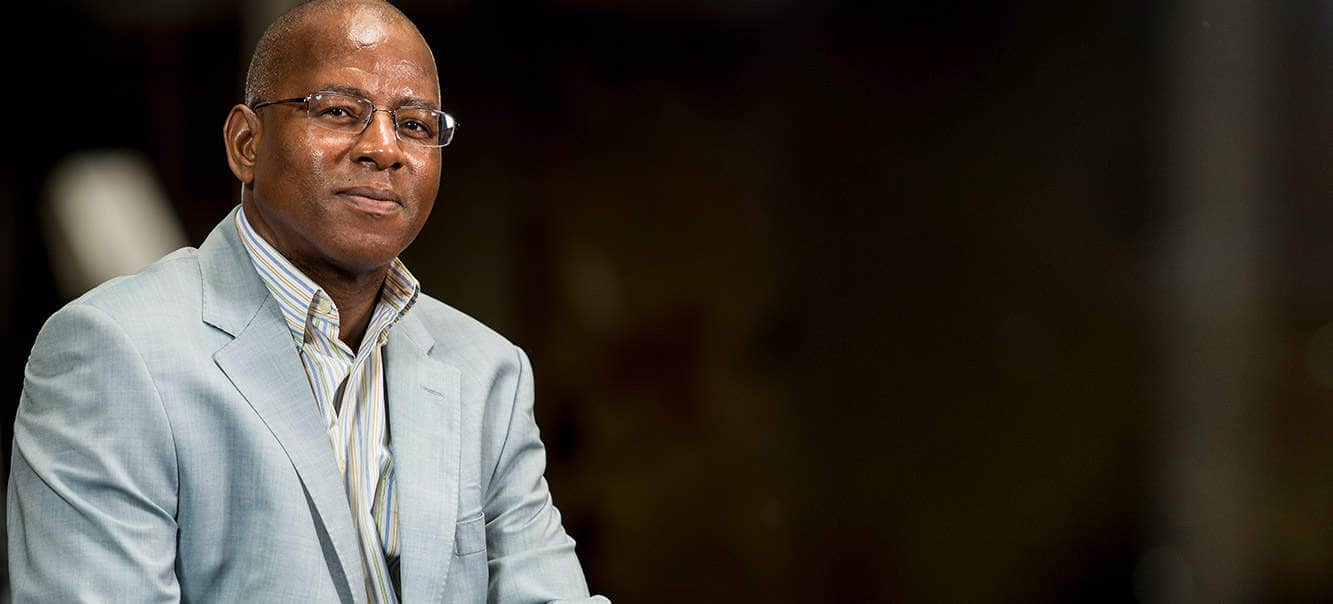THE PRESIDENTIAL JOBS SUMMIT FRAMEWORK AGREEMENT
President Cyril Ramaphosa announced the Jobs Summit during his inaugural state of the Nation Address in February and subsequently requested NEDLAC to convene Social Partners to address the crisis of unemployment and to come up with practical solutions for South Africa’s ailing economy.
Since 2014, economic growth in South Africa has slowed down and become more volatile. At the same time, joblessness and inequality have deepened. These twin burdens remain arguably the main blockages to sustained economic progress.
Mining and formal manufacturing have been particularly hard hit by the slowdown of the past few years, which has worsened South Africa’s high joblessness and inequality. Among countries that report a Gini coefficient, South Africa invariably ranks amongst the top two or three most unequal in the world.
The Social Partners approached these challenges on the basis that there is an urgent need for visible changes in the lives of ordinary South Africans and the economy. Government, business, labour and community leaders have worked collaboratively to identify solutions to job retention and job creation blockages and opportunities that each social partner can work on to stimulate greater participation in the economy.
The Jobs Summit convened on 4 and 5 October 2018 lays the basis for more responsive and effective collaboration to deliver on the promise of a better economy for all South Africans by ensuring that commitments are clear and precise, that they strengthen existing initiatives and develop new ones, and that they take into account the challenges faced by each Social Partner. This includes finding solutions to unlock the bottlenecks identified in job creation, including – where relevant – addressing policy and regulatory uncertainty to unlock inclusive growth and employment.
The Jobs Summit commitment carries with it the recognition by all stakeholder groups that the weaknesses in South Africa’s economy can be addressed only if all social and economic stakeholders work together.
On Thursday, 4 October 2018, all Social Partners formally declared their commitment to the Jobs Summit Accord and Framework Agreement. These commitments include clear statements on the timescale for implementation and envisaged employment impact and a monitoring and evaluation framework that is expected to ensure accountability amongst partners and to the wider community.
The Jobs Summit is part of President Cyril Ramaphosa’s drive to build a Social Compact amongst the various stakeholders on what is needed to ensure that the economy grows, becomes more productive and attracts greater investment.
To view the detailed Presidential Jobs Summit Framework Agreement, please click here:
To view the accompanying Annexure, please click here:
PERSISTENTLY POOR PMI PERFORMANCE DURING THE THIRD QUARTER OF 2018 IS INDICATIVE OF A FRAGILE ECONOMY – SEIFSA
Johannesburg, 1 October 2018 - The Steel and Engineering Industries Federation of Southern Africa (SEIFSA) notes with concern that the seasonally-adjusted Absa Purchasing Managers’ Index (PMI) released today for September 2018 remained largely unchanged, with the lower-than-expected level being indicative of a fragile economy.
The latest seasonally-adjusted preliminary PMI data show that the composite PMI trended lower in September 2018, when compared to the previous month of August 2018. The data show a very weak level of 43.2 points recorded in September 2018, when compared to a less-than-inspiring performance of 43.4 points registered in the month of August 2018.
“The deteriorating trend confirms the challenges faced by businesses amid increasing operational costs underpinned by a volatile exchange rate, rising energy costs and galloping petrol prices,” SEIFSA Chief Economist Michael Ade said.
He added that given the poor GDP growth recorded in the second quarter of 2018, the performance of the PMI in the third quarter of 2018 is worrisome as it invariably adds to concerns of whether the South African economy will rebound immediately from the prevailing technical recession.
Moreover, the PMI data which capture the third consecutive decline from July 2018, also registering a sharp contraction for the month of August 2018, correlate with consistent declines in both the business expectation and the business confidence indices over the same period, thereby adding to the stress faced by businesses. The PMI for September 2018 is the lowest since January 2017. Dr Ade said there were indications that the PMI may get worse next month, unless there is a clear policy direction from Government in the short to medium term.
He warned that as the country eagerly looks forward to Finance Minister Nhlanhla Nene’s Medium-Term Budget Policy Statement (MTBPS) for implementation detail on the President’s proposed stimulus package aimed at returning the economy to good health, businesses were likely to continue to operate under increasing operational costs. He said the rand will continue to yo-yo up and down, fuelled by increased uncertainty, capital flow will continue to respond negatively to changes in expected returns and the uncontrollable petrol price will add to increasing logistic costs, thereby squeezing what is left of business margins further.
“It is a challenging time for purchasing executives. Also, the current economic environment is problematic to businesses, which must also worry about negative external supply shocks and rising domestic costs of doing business while planning production processes.
“Hopefully, the upcoming job summit will provide some reassurances to South Africans and the business community at large of the Government’s ability to steer the ship back to safety. Importantly, a nod is needed from Moody Investors Services – the only big credit-rating agency not to have downgraded South Africa’s sovereign debt to junk – which still has the country’s rating a notch above sub-investment grade, when it conducts its review later this month,” Dr Ade concluded.
Issued by:
Ollie Madlala
Communications Manager
Tel: (011) 298 9411 / 082 602 1725
Email: ollie@seifsa.co.za
Web: www.meindaba. seifsa.co.za
WORSENING UNEMPLOYMENT CRISIS AMIDST RECENTLY-LAUNCHED ECONOMIC STIMULUS PLAN A SERIOUS CONCERN - SEIFSA
Johannesburg, 26 September 2018 – The Steel and Engineering Industries Federation of Southern Africa (SEIFSA) is seriously concerned about the jobs lost in the manufacturing sector during the second quarter of 2018 and eagerly looks forward to the implementation of the economic stimulus plan announced by President Cyril Ramaphosa last week.
Speaking after the release of the national Quarterly Employment Statistics (QES) today, SEIFSA Economist Marique Kruger said although the employment numbers were depressing, SEIFSA remains optimistic that the economic stimulus package will boost employment numbers going going forward.
The data – which comes from an enterprise-based sample survey by Statistics South Africa – showed that the manufacturing sector, lost 1.1 percent of total employment (-13 000 jobs) in quarter 2 of 2018, with employment decreasing from 1 192 000 in June to 1 179 000 in June 2018. The metals and engineering cluster is an important of the manufacturing sector.
The job numbers in both the mining and utilities sectors were also uninspiring, with both sectors recording a loss of 2 000 jobs and no growth in job numbers respectively. In total, 69 000 jobs were lost between the first quarter (Q1) of 2018 and the second quarter (Q2), amounting to a 0.7 percent decrease. However, between the second quarter (Q2) of 2017 and the second quarter (Q2) of 2018, an encouraging total of 13 000 jobs were created, representing 0.1 percent of jobs created.
“Given that the recently-published real GDP figure for the second quarter of 2018 revealed a weaker-than-expected growth, thus confirming a persistently low demand environment, the decrease in employment for the same period correlates with structural challenges faced by South Africa’s industrial production,” Ms Kruger said.
She added that the consistent decline in employment numbers confirms the poor state of the country’s economy, despite the existence of political will, encouraging rhetoric and initiatives aimed at rejuvenating industrial activities towards economic growth and more employment.
Moreover, Ms Kruger said the dilemma of low growth and high unemployment is compounded by rising petrol prices and persistently high inflation numbers.
“At 5.1%, the headline inflation is tantalisingly close to the South African Reserve Bank’s upper target band, effectively limiting policy makers’ ability to use expansionary monetary or fiscal policy interventions to return the economy to good health,” Ms Kruger said.
She said the Reserve Bank’s decision to leave the repo rate unchanged at 6.5% last week further supports this point, showing the Bank’s sole commitment to the mandate of maintaining price stability, despite the economy needing a rates decrease in order to boost demand.
Ms Kruger said the current low-growth scenario poses a serious challenge to dealing with the unemployment crisis and effectively implementing the President’s economic stimulus plan. She said if growth continues to be subdued, business and investor confidence will continue declining, thus further constricting economic activities and job creation.
“Clearly, these are tough times for both businesses and consumers alike. Hopefully the Medium-Term Budget Policy Statement scheduled for next month will provide some direction for the economy by expounding on both the reprioritisation and fiscal consolidation initiatives taken by the Government,” concluded Ms Kruger.
Issued by:
Ollie Madlala
Communications Manager
Tel: (011) 298 9411 / 082 602 1725
Email: ollie@seifsa.co.za
SEIFSA is a National Federation representing 23 independent employer Associations in the metals and engineering industries, with a combined membership of 1600 companies employing around 200 000 employees. The Federation was formed in 1943 and its member companies range from giant steel-making corporations to micro-enterprises employing fewer than 50 people.
METALS AND ENGINEERING INDABA CONFERENCE DELEGATES PASS A RESOLUTION FOR GOVERNMENT TO BE EFFECTIVE IN IMPLEMENTING AND MONITORING DESIGNATION OF LOCAL CONTENT
Johannesburg, 21 September 2018 – Delegates attending the 4th Southern African Metals and Engineering Indaba organised by the Steel and Engineering Industries Federation of Southern Africa (SEIFSA) at the IDC Conference Centre in Sandton passed a resolution for Government to be effective in implementing and monitoring designation of local content.
During discussions in the 5th and 10th sessions, delegates expressed a strong need for the Government to be much more effective in monitoring the implementation of designation of local content in production processes across all value chains, and also expressed disappointment about the awarding of tenders by State-owned enterprises to foreign companies, when there is capacity for local businesses to manufacture the same products.
Delegates stressed the fact that designation of locally-sourced products (towards improving local content) should be complied with and that infrastructure investment without designation of products that can be sourced locally will be futile. However, delegates acknowledge that there may be instances where domestic capacity may be less than stated demand, owing to the contraction or closure of some sectors or in the event of new product ranges. In these instances, delegates felt that a temporary allowance for imports may be granted, after full utilization of domestic capacity, with the knowledge that the supply deficit would undoubtedly induce expansion investment.
During the 3rd, 6th and 10th sessions at the conference, delegates made up of captains of industry, labour leaders, academics and senior international partner organisations also called on the Government to include the local manufacturing industry, and the diverse metals and engineering cluster within it, in decision making regarding foreign and domestic direct investments in order to promote beneficiation and job creation. Specific reference was made to Chinese investments which are often concluded without involving business with potential negative effects on local jobs. Given that it is important to create jobs and not lose them, the delegates repeatedly highlighted the importance of investment deals to be concluded transparently and with the maximum participation of the local industry.
Recognizing the need for local manufacturers to be more competitive, in plenary session 8 delegates nevertheless called on Government to prioritize local businesses in all investment and construction projects, including Black Economic Empowerment partners in order to comply with South African rules designed to address racial disparities which continue to exist more than two decades after the end of apartheid.
During the 11th plenary session at the Indaba, delegates reflected on some constraints to South Africa’s international competitiveness, highlighting the need to benchmark the local cost curves with international standards with the aim of reducing skyrocketing costs. While also acknowledging the continuous efforts made by the government to protect local manufacturers from cheap, subsidized imports from Asia, via the imposition of necessary tariffs, delegates resolved that equal support should also be made available to the mid and downstream group of industries of the M&E cluster.
Delegates also resolved to call on the Government to reconsider its position on the introduction of a carbon tax in South Africa, arguing that it would amount to a production tax, which would further squeeze businesses’ margins. They warned that the introduction of carbon tax would impose additional costs to business, harm the economy and impact negatively on jobs at a time when South Africa badly needs more jobs to be created. Arguing that the country cannot afford carbon taxes, delegates said that it was vital for the Government to follow Australia’s example and abandon its plans to introduce carbon tax, as it did with its nuclear ambition earlier in the year.
Issued by:
Ollie Madlala
Communications Manager
Tel: (011) 298 9411 / 082 602 1725
Email: ollie@seifsa.co.za
Web: www.meindaba. seifsa.co.za
PRESIDENT RAMAPHOSA’S FISCAL STIMULUS PACKAGE DOES NOT HOLD KEY TO SOUTH AFRICA’S LONG-TERM ECONOMIC GROWTH
Johannesburg, 21 September 2018 – Government’s fiscal stimulus package will not provide long-term solutions to South Africa’s ailing economy, instead Government needs to create a conducive environment for entrepreneurs in the private sector to grow their businesses and, subsequently, grow the economy, so said Democratic Alliance leader Mmusi Maimane.
Delivering the closing address at the fourth Southern African Metals and Engineering Indaba, in Sandton this afternoon, Maimane said President Ramaphosa’s stimulus package, launched today, could not address all the challenges, including decrease in investment, decrease in ease of doing business, decreasing value of the rand and constantly rising fuel and food prices, currently facing the country.
“I genuinely do not believe that a fiscal stimulus package will have a sustained positive effect in the absence of sensible economic reform. South Africa needs to take a fundamentally different approach to our economy,” said Maimane.
He said that the State was the main thing standing in the way of South Africa’s economic growth.
“Our economy is suffering from an extreme case of state intervention. The State needs to get out of the way, it needs to step aside so that all the pent-up energy and ideas and creativity and dynamism in our nation can burst forth and create wealth.”
He added that the role of the State was not to create wealth or jobs. Instead its role was to create a fertile environment for economic activity to flourish.
“Not only would getting the State out of the way free entrepreneurs up to create wealth and jobs but it would also free it (the State) up to do its job, which is to step in where the markets fail.
“There is so much that our State could and should be doing to help people become better educated, healthier and safer. To have better access to clean water, affordable electricity, reliable transport and easy communications.”
He said South Africa was crying out for these things but the State was far too busy meddling in the economy, bossing entrepreneurs around and trying to run businesses.
“Instead of meddling in the economy, the State should build a capable state committed to delivering services to all its citizens and the essential prerequisite for a capable state is to appoint people on merit, on their knowledge and experience and not on their political affiliation.”
Issued by:
Ollie Madlala
Communications Manager
Tel: (011) 298 9411 / 082 602 1725
Email: ollie@seifsa.co.za
Web: www.meindaba. seifsa.co.za
METALS AND ENGINEERING INDABA CONFERENCE DELEGATES PASS A RESOLUTION CONDEMNING MINISTERS’ FAILURE TO ATTEND THE CONFERENCE
Johannesburg, 20 September 2018 – Delegates attending the 4th Southern African Metals and Engineering Indaba organised by the Steel and Engineering Industries Federation of Southern Africa (SEIFSA) at the IDC Conference Centre in Sandton firmly resolved to express their bitter disappointment at the inability of some high-ranking government officials to attend important and relevant sessions.
The delegates said these sessions presented a unique opportunity for the various individuals to interact with members of the community, labour and academia and preeminent researchers to get direct insights into challenges facing the economy.
An invitation was extended to both Finance Minister Nhlanhla Nene and Public Enterprises Minister Pravin Gordhan to attend the sessions on working together to improve South Africa’s Sovereign Credit Rating and a reflection on what needs to be done to end or contain public corruption and corporate malfeasance in South Africa. Both Ministers declined the invitation.
Conference delegates also expressed concern that Eskom Group Chief Executive Phakamani Hadebe – who also declined the invitation – had missed an opportunity to engage robustly and frankly with the delegates in search of solutions on how administered prices can be better managed to make South Africa competitive as an international exporter.
The sessions went on with Business Unity South Africa (BUSA) CEO Tanya Cohen, Organisation Undoing Tax Abuse Executive Director Wayne Duvenage and a senior Transnet executive who stood in for CEO Siyabonga Gama.
However, all delegates resolved to explicitly articulate their disappointment with the failure by the Ministers and the CEO of Eskom, a strategically important power utility company to be part of the conference.
One of the delegates proposed that the joint position be made known. Accordingly, the conference adopted a resolution saying: “We are very disappointed that Ministers of two key government portfolios - namely Finance and Public Enterprises - which are important in strategically providing certainty and attracting investments in the private sector could not attend to gain an intrinsic understanding of the challenges faced by businesses.
“We are also concerned that Mr Hadebe could not avail himself to shed more light to stakeholders from business and labour communities on some of the challenges facing the entity and its efforts to contain ballooning operational costs,” the resolution said.
Master Builders South Africa Executive Director Roy Mnisi – who was one of the speakers at the Indaba – resoundingly supported the resolution, informing delegates that the construction industry also had its annual conference in the Eastern Cape over two days last week and “we could not get a single Government Minister or even the Director-General to attend our conference,” the resolution adopted by the delegates said.
The Indaba also passed a resolution expressing gratitude and appreciation to Minister in the Presidency Nkosazana Dlamini-Zuma for her attendance of the conference. Dr Dlamini-Zuma was the main speaker in the session dealing with the National Development Plan.
The resolution unanimously passed by the delegates echoes concerns raised by SEIFSA CEO Kaizer Nyatsumba when he made introductory remarks in the morning when he said: “While we have deeply appreciated the involvement of Former President Kgalema Motlanthe, then-ANC Treasurer-General Dr Zweli Mkhize, Ministers Mildred Oliphant, Pravin Gordhan, Lindiwe Zulu, Ebrahim Patel and, this year, Dr Nkosazana Dlamini-Zuma, hitherto we have struggled to get the President of the country, the Deputy President of the country, the Minister of Trade and Industry, other key Ministers, the Gauteng Provincial Government and the Cities of Johannesburg and Ekurhuleni to show the metals and engineering sector the respect worthy of them by participating in this conference.”
He added that while the business community welcomed President Cyril Ramaphosa’s commitment, during his inaugural State of the Nation Address in February, that the Government will place an emphasis on manufacturing, business was deeply concerned that a higher level of commitment to the metals and engineering sector from the Department of Trade and Industry and other parts of his Government (including the Presidency itself) was yet to be seen.
Issued by:
Ollie Madlala
Communications Manager
Tel: (011) 298 9411 / 082 602 1725
Email: ollie@seifsa.co.za
Web: www.meindaba. seifsa.co.za
ANC AND DA OUTLINE THEIR PLANS FOR ECONOMY AT THE METALS AND ENGINEERING INDABA
Johannesburg, 21 September 2018 – The ruling party is cognisant of and appreciates challenges facing South Africa’s metals and engineering (M&E) sector including lack of demand, proliferation of illegal imports, high input costs, unemployment and lack of investment, its head of Economic Transformation Committee Enoch Godongwana said this morning.
Speaking at the Southern African Metals and Engineering Indaba currently taking place at the IDC Conference Centre, Mr Godongwana said in response to the challenges currently facing the M&E sector, Government’s industrial policy needed to reverse the deindustrialization trend, focus on labour intensive sectors to create jobs and, in collaboration with the private sector, invest in vocational training to address the shortage of skills in the sector.
Mr Godongwana said he also believed that Government needed to incentivize business owners who reinvested their profits into labour intensive production.
“Massive investment also needs to be made in capital infrastructure projects to reverse the challenges facing the M&E sector, particularly lack of demand. We also need to tighten the framework for localization but all these efforts must be done in a manner that enables Black people to participate in the economy to ensure social cohesion,” said Mr Godongwana.
On the same plenary session, Democratic Alliance (DA) Shadow Minister of Trade and Industry Geordin Hill-Lewis unraveled DA’s plan to turn South Africa’s economic fortunes for the better. He said the plan involved splitting power utility Eskom into smaller business units, allowing cities and municipalities to buy electricity directly from producers. This, Mr Hill-Lewis, believes will immediately cut input costs and boost the economy.
“We also need to privatise non-strategic State-owned entities such as South African Airways because it has been proven that the private sector is more efficient in running businesses,” he said.
He added that the DA’s plan also advocates for the protection of property rights, defending independent institutions such as the Reserve Bank; the shelving of policies that make it unattractive to do business in the country. In this regard, he said the DA welcomed progress made in the Mining Charter.
Mr Hill-Lewis said policy makers needed to exempt small business from bargaining agreements negotiated on their behalf.
“The State also needs to pay invoices owed to businesses. There are currently billions of rands worth of invoices owed to business owners, and payment of those invoices would provide an immediate stimulus to the economy.”
He said the Democratic Alliance’s plan demonstrated that the party understood that Government needs to create an enabling environment for the economy to grow in order for businesses and entrepreneurs to create jobs.
Issued by:
Ollie Madlala
Communications Manager
Tel: (011) 298 9411 / 082 602 1725
Email: ollie@seifsa.co.za
Web: www.meindaba. seifsa.co.za
LACK OF SKILLS, LOW ECONOMIC GROWTH AND SATURATED MARKETS CONSTRAINTS TO INVESTING IN METALS AND ENGINEERING SECTOR
Johannesburg, 21 September 2018 – Lack of demand in the form of large infrastructure projects, expensive input costs, lack of skills required by the metals and engineering (M&E) sector as well as policy uncertainty, low economic growth, low returns on existing investment and a saturated domestic market are some of the factors identified as constraining investment in South Africa’s M&E sector.
Speaking at the Metals and Engineering Indaba taking place at the IDC Conference Centre, Southern African Institute of Steel Construction CEO Paolo Trinchero said other factors identified as barriers to investing in the sector include lack of trust between government, business and labour, lack of collaboration in pursing sustainable industry solutions and lack of innovation.
Echoing Mr Trinchero’s sentiments, Steel and Engineering Industries Federation of Southern Africa Chief Economist Michael Ade said there has, over the last decade, been a lack of both green and brown fields investment into the sector owing to low demand, among other factors.
He said, as a result, domestic producers were under pressure to shed jobs, which in turn lead to low productivity in the sector – this created a negative vicious cycle, which is bad for the economy.
However, there was hope that working in collaboration, and working with the countries’ young people, South African companies could find solutions to the challenges they face.
“There is definitely great potential in a huge pool of young, enthusiastic young people that can be trained and enabled to contribute towards our sector. There is also a need to enhance partnerships and collaborations between companies so that they approach these challenges as a collective. Industry needs to stop working in silos and work together in seeking solutions required to address constraints to investing in our sector,” Mr Trinchero said.
According to Dr Ade, interventions required to address challenges facing the sector include increasing aggregate domestic demand by committing to supporting designation and local procurement; reconsidering administered prices to put money back into the pockets of consumers, pursuing import substitution by actively promoting collaboration between producers across all value chains to enhance in-country value addition, improving port efficiency and considering re-instating rail subsidies for export competitiveness through implementation of export incentives.
Meanwhile, International Finance Corporation (IFC) Senior Investment Officer Paul Mukasa said the IFC, which had a long track record of providing long-term investment in the metals sector had invested billons in the sector in more than 50 countries across the globe.
He said when considering investing in a country, the IFC focused on reliable access to energy; the sector’s global competitiveness, energy efficient producers and best practice.
ArcelorMittal South Africa General Manager for Africa Overland Alph Ngapo said South Africa was yet to take full advantage of growth opportunities presented by the rest of the African continent. He said South African companies needed to specifically focus on East and West Africa as well as the SADC region where hundreds of billions in infrastructure projects will be spent.
Issued by:
Ollie Madlala
Communications Manager
Tel: (011) 298 9411 / 082 602 1725
Email: ollie@seifsa.co.za
Web: www.meindaba. seifsa.co.za
A MILLION JOBS BY 2027 POSSIBLE IF CHINESE INVESTMENT EFFECT IS WELL MANAGED
Johannesburg, 21 September 2018 – Business and Government need to work together to increase demand for locally-manufactured products if the creation of one million jobs, in the manufacturing sector, by 2027 is to be realised, Manufacturing Circle CEO Philippa Rodseth said at the Metals and Engineering Indaba, in Sandton this afternoon.
"We need demand side interventions. Without demand, we cannot produce at full capacity, we cannot attract investment and we cannot create jobs. We, therefore, need to increase aggregate demand by buying locally-manufactured gods, replacing imports where possible and increasing local producers' exports to markets outside South Africa.
Last year, the Manufacturing Circle launched its “Map to A Million New Jobs in a Decade” plan, with the organisation’s chairman André de Ruyter saying at the time: “If manufacturing can expand to 30% of GDP, between 800 000 and 1.1 million direct jobs can be created, with 5 to 8 times that number in indirect jobs,” he added. “Our ‘Map to a Million’ puts forward detailed proposals to deliver a million jobs in manufacturing in the next decade.”
SEIFSA Chief Economist Michael Ade said while the Map to a Million Jobs in a Decade plan was a good one, it was silent on some key points – including the Chinese effect. He said China was increasingly shaping global discourse and economic development including jobs, in key regional and global markets, and will grow in significance within a decade and can’t be ignored.
He said recipients of huge Chinese investments/loans risked piling up dangerous amounts of debt. This, in turn, provides a strategic hold by China over the indebted countries.
“The Chinese loans are often shrouded in secrecy, raising fears that local politicians may benefit more than their people. Chinese projects often make use of lots of Chinese workers (even on menial jobs), increasing their productive efficiency to the detriment of indigenous labourers,” Dr Ade said.
He added that although Chinese investments bring a different flavour and level of enthusiasm in some industries, it was a catch-22 situation in the labour intensive industries of the manufacturing sector (including its diverse M&E cluster), because of its perceived negative effects on job creation.
To mitigate the China effect, Dr Ade proposed that Chinese SOEs, development Banks and its investors partner to collaborate with South African businesses on all fronts in new projects.
“A win-win collaboration should be pursued with the intention of creating jobs and ensuring that locals are given first preference for jobs and where skills are lacking or unspecialised, efforts should be made to train or transfer skills to the locals.”
Dr Ade said the Manufacturing Circle plan also lacked detail on how to directly support black businesses. He said manufacturing needed to encourage and empower the participation of black people in the economy by securing inclusive growth.
Inspite of the plan’s oversights, Dr Ade said it was possible to create one million jobs provided that the China challenge is well managed and provided that beneficiation is systematically pursued across sub-industries within the cluster, with specific focus on upskilling and re-skilling to create new jobs, as some industries were more labour intensive than others.
In conclusion, Dr Ad said South Africa faced extraordinary challenges in dealing with the crisis of unemployment which is compounded by inconsistent growth levels and prevailing low demand. These aspects posed huge challenges in actualising the proposals made by the Manufacturing Circle plan.
“Realising the Manufacturing Circles plan of creating a million jobs in a decade will require a different mindset from captains of industry. It also needs flexibility, co-operation, hard work and above all serendipity,” he said.
Meanwhile, Department of Economic Development Deputy Director General Zeph Nhleko said, the one million jobs didn’t have to come directly from the manufacturing sector but the sector should enable the creation of jobs in other sectors such as the services sector.
Issued by:
Ollie Madlala
Communications Manager
Tel: (011) 298 9411 / 082 602 1725
Email: ollie@seifsa.co.za
Web: www.meindaba. seifsa.co.za
SOUTHERN AFRICAN METALS AND ENGINEERING INDABA 2018 OPENING ADDRESS
OPENING REMARKS
Thank you, Melissa.
Ladies and Gentlemen, welcome to the Fourth Southern African Metals and Engineering Indaba. Our inaugural conference took place at Emperors’ Palace at Ekurhuleni in 2015, before we concluded a strategic partnership agreement that saw us meeting here at the IDC Conference Centre over the past two years. This is now the third conference here at the IDC, and we are immensely grateful to the Corporation.
Thank you, Ladies and Gentlemen, for your support and patronage. It always means so much to us to have you turning out in such numbers at this important industry conference. The starting point in arranging a conference is getting the right topics and relevant speakers to address them, but the most important is ensuring that there is an active, participative audience to engage meaningfully with the speakers and the topics under discussion. Therefore, this conference would not be the success that we would like it to be without your presence.
We are immensely grateful to all our Speakers, all of whom are busy men and women who have put time aside to be with us in the course of today and tomorrow. Quite a number of them have become regulars, and have addressed the Southern African Metals and Engineering Indaba at least once or even twice before. They are the lifeblood of this annual conference: without them, there is no conference.
From our inaugural year, we have been very fortunate to get top-quality speakers for this Indaba. We thank each one of them – those already here with us this morning, and the many others yet to join us in the course of the day and tomorrow.
As always, our Partner, the Industrial Development Corporation, and our Sponsors are richly deserving of our appreciation and gratitude. As with some of our speakers, quite a number of our Sponsors have come to be reliable, regular Partners of ours when it comes to the Southern African Metals and Engineering Indaba. MerSeta and Standard Bank have been with us from the very beginning, and over the past two years we have been delighted to welcome Sanlam, Investec, Novare, Kagiso Asset Management and SMS Group on board. We are delighted to welcome Rand Mutual Assurance on board this year.
We are immensely grateful to and appreciate all our sponsors, but wish to acknowledge, in particular, the 100-year-old Sanlam, which is our Gold Sponsor this year, and which was also our Primary Sponsor for the annual SEIFSA Golf Day last month. We know that Sanlam has expressed a wish to grow that partnership with SEIFSA stronger from year to year, and we eagerly look forward to that.
Finally, we also acknowledge and appreciate our media partners: Engineering News, Independent Newspapers and Classic FM.
Ladies and Gentlemen, 2019 will mark the fifth anniversary of the Southern African Metals and Engineering Indaba. Coinciding as it will with SEIFSA’s 76th year, we have every intention of making it our biggest and best conference ever. To accomplish that goal, we will need the dedicated support of all our delegates, our Strategic Partner the IDC and all our Sponsors. Indeed, we will need the active support of the governments that we and our compatriots elected at local government level and will have elected next year at provincial and national levels.
Regrettably, the only thing that the Southern African Metals and Engineering Indaba has not yet had to the full extent is the enthusiastic support of our democratic Government. While we have deeply appreciated the involvement of Former President Kgalema Motlanthe, then-ANC Treasurer-General Dr Zweli Mkhize, Ministers Mildred Oliphant, Pravin Gordhan, Lindiwe Zulu, Ebrahim Patel and, this year, Dr Nkosazana Dlamini-Zuma, hitherto we have struggled to get the President of the country, the Deputy President of the country, the Minister of Trade and Industry, other key Ministers, the Gauteng Provincial Government and the Cities of Johannesburg and Ekurhuleni to show the metals and engineering sector the respect worthy of them by participating in this conference.
While we welcomed President Cyril Ramaphosa’s commitment, during his inaugural State of the Nation Address in February, that the Government will place an emphasis on manufacturing, we must say, though, that we are deeply concerned that we have not yet seen a higher level of commitment to the metals and engineering sector from the Department of Trade and Industry and other parts of his Government (including the Presidency itself). They were all invited to this conference, but waited until the eleventh hour to inform us that, once again, they would not bother to join us. We find that deeply concerning and hope that there will be a change in attitude after next year’s elections.
I mention this, Ladies and Gentlemen, to make the important point that SEIFSA is not a politically partisan organisation. We believe in working in collaborative partnership with all stakeholders, starting with the three spheres of government, regardless of whichever party is in power in that sphere at the time. We want always to have healthy, constructive relations with our elected governments and our labour partners. That is why we get deeply concerned when elected officials who are accountable to us as personal and corporate taxpayers do not take as important a sector of the economy as the metals and engineering cluster seriously and want to be begged to do the work for which we pay them.
In the past, some in Government, especially at the Department of Trade and Industry, have wanted to lean on us to exclude members of the Official Opposition from the programme before that Department could support us. They have gone as far as wanting to have a say on the composition of the programme and the identification of speakers to be invited. Needless to say, we have rejected both attempts.
Personally, I have been deeply alarmed by such conduct from a Government Department that is meant to be a champion for business in government. That suggests that some people in that Ministry – and, perhaps, in Government in general – have tended to see themselves as deployed party apparatchiks rather than the servants of the people. That, in my view, will explain why, in the four years of this conference, we have not once had the privilege of the Minister of Trade and Industry or the Director-General in that Department addressing – let alone attending – the Southern African Metals and Engineering Indaba. This is particularly disturbing when one considers, to the best of one’s knowledge, that, quite correctly, there has never an annual Mining Indaba without the presence and active participation of the Minister of Mineral Resources, whoever the incumbent has been at the time.
Clearly, then, Ladies and Gentlemen, we need a serious change in attitude from the Department of Trade and Industry and many others in Government, including the Gauteng Provincial Government which has excelled at making all sorts of promises but has been spectacularly poor at meaningfully reaching out to and working with business – or, in particular, the metals and engineering sector. Over the past three years we have invited both the Gauteng Premier and his Economic Development MEC to this conference, and neither has even bothered to reply to that invitation.
That, I suggest, is simply not good enough. Instead, it speaks of the arrogance that has come to characterise our Government. We must hope, therefore, that the now-fading “New Dawn” promised by an ebullient President Ramaphosa will soon manifest itself, with the President and his Deputy leading by example. We must state clearly that the Government does not do us a favour by engaging with us. Instead, it would be doing its job – and that is all we are asking it to do.
Those in Government must know that, whenever they refuse to make themselves available to address this conference, we will simply extend an invitation to those – inside and outside this Government, including members and leaders of opposition parties – who are willing to engage with us. They are important to us because of the lofty positions that they hold in government, but they certainly do not possess a monopoly on wisdom or insights into what is important for the revival of our economy.
With that out of the way, let me move on to extend my deepest gratitude to Dr Mathews Phosa, former ANC Treasurer-General and the inaugural Premier of Mpumalanga, for bailing us out and agreeing, when we were let down by the Presidency at the eleventh hour, to deliver the Opening Address this morning. I am also equally grateful to the Leader of the Official Opposition, Mmusi Maimane, for similarly accepting our invitation to deliver the Closing Address tomorrow afternoon, after repeated attempts to get Deputy President David Mabuza to do so failed dismally. To Dr Phosa, a veteran businessman and experienced politician, and to Mr Maimane, thank you very much for your continued accessibility.
Finally, I acknowledge the presence this morning of a number of our Board Members, among them Interim President Alph Ngapo, and the Chairpersons and members of our various member Associations. Also acknowledged, with gratitude, is the presence of members of the leadership of the IDC.
We look forward to a fruitful, robust engagement with our speakers in the course of the next two days. At the end of each day, there will proposed resolutions that will be put to you, the delegates, for your consideration and adoption.
Ladies and Gentlemen, we at SEIFSA believe very firmly that, however difficult things may be at the moment, there continues to be a future for Manufacturing in South Africa and our region, and we believe that that future also includes a thriving Metals and Engineering Sector. However, for the sector to realize its full potential, it behoves all of us – in business, Government and labour – to get all hands on deck.
Thank you very much, yet again, for your attendance. Let us have a fruitful engagement that will be seen by future generations to have vital for the continued survival of our Sector.









